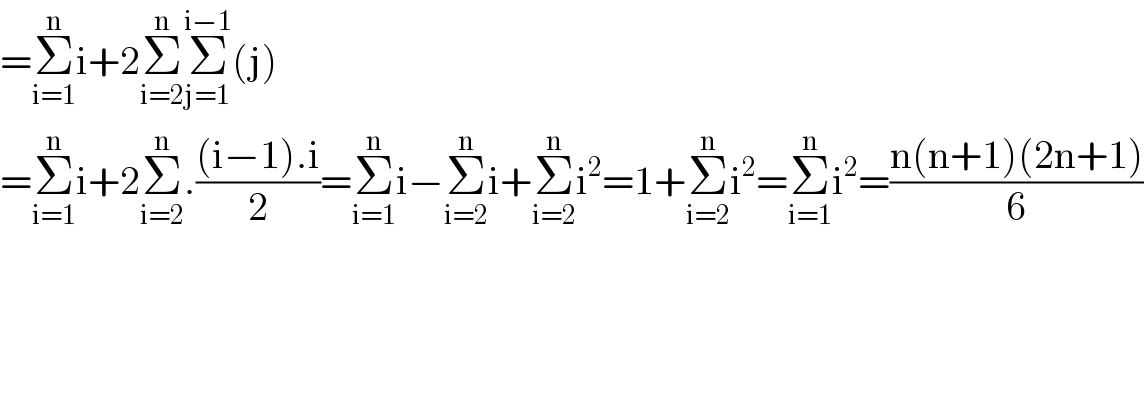
Question and Answers Forum
Question Number 73028 by mathmax by abdo last updated on 05/Nov/19

Answered by mind is power last updated on 05/Nov/19

Answered by mr W last updated on 05/Nov/19
![=2×[n×1+(n−1)×2+...+1×n]−(1+2+...+n) =2×Σ_(k=0) ^(n−1) (n−k)(k+1)−(1+2+...+n) =2×Σ_(k=0) ^(n−1) [(n−1)k+n−k^2 ]−(1+2+...+n) =2×[(n−1)((n(n−1))/2)+n^2 −(((n−1)n(2n−1))/6)]−((n(n+1))/2) =((n(n+1)(2n+1))/6)](Q73066.png)
Commented by mathmax by abdo last updated on 05/Nov/19

| ||
Question and Answers Forum | ||
Question Number 73028 by mathmax by abdo last updated on 05/Nov/19 | ||
 | ||
Answered by mind is power last updated on 05/Nov/19 | ||
 | ||
| ||
Answered by mr W last updated on 05/Nov/19 | ||
![=2×[n×1+(n−1)×2+...+1×n]−(1+2+...+n) =2×Σ_(k=0) ^(n−1) (n−k)(k+1)−(1+2+...+n) =2×Σ_(k=0) ^(n−1) [(n−1)k+n−k^2 ]−(1+2+...+n) =2×[(n−1)((n(n−1))/2)+n^2 −(((n−1)n(2n−1))/6)]−((n(n+1))/2) =((n(n+1)(2n+1))/6)](Q73066.png) | ||
| ||
Commented by mathmax by abdo last updated on 05/Nov/19 | ||
 | ||